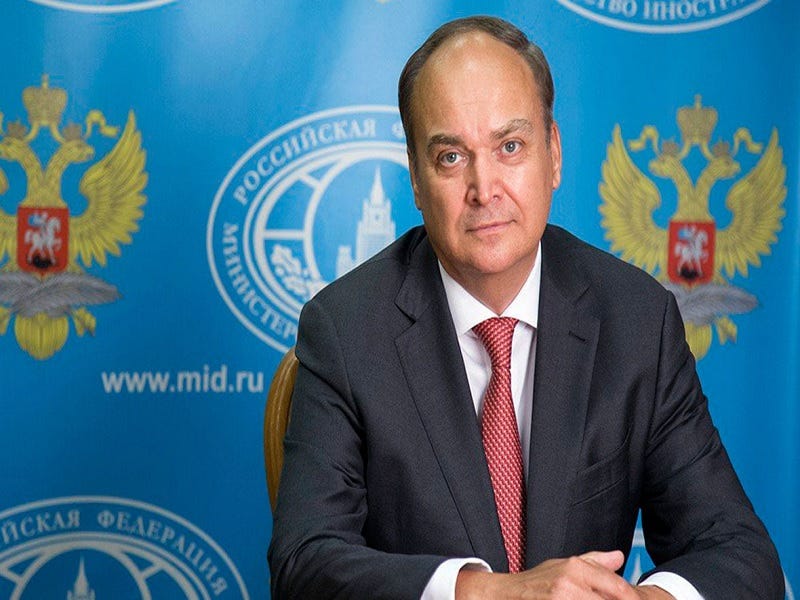Reducing The Number Of US Journalists In Russia Would Be A Reasonable Move
The Kremlin’s decision to maintain the lopsided state of affairs wherein there are more American journalists in Russia than Russian journalists in America was done out as a so-called “goodwill gesture” under completely different geostrategic circumstances. Continuing to perpetuate this policy in the current context therefore doesn’t reap any realistic soft power benefits.
Russian Ambassador to the US Anatoly Antonov said during his latest appearance on a popular talk show in his country that “Perhaps it is the time for us to show reciprocity and reduce the number of American journalists who work in Moscow and in Russia as a whole to the number [of Russian journalists] who work in Washington and New York.” His suggestion was shared in response to what he described as his “very harsh” conversation with US Under Secretary of State Victoria Nuland the other day.
Those two diplomats met to discuss Evan Gershkovich, who was arrested on espionage charges late last month, but whom US Secretary of State Antony Blinken considers to be “wrongfully detained”. “Russia Had Every Right To Arrest That Wall Street Journal Employee For Espionage”, and “Journalists Should Be Mad At Evan Gershkovich For Exploiting His Profession To Spy On Russia”, but the incident has been exploited by the US to smear Russia as a so-called “dictatorship”.
Furthermore, Antonov revealed that “The Americans have threatened us with retaliatory measures if we do not release Gershkovich in the near future”, which suggests that the US might arbitrarily detain one or some Russian journalists within its borders on false espionage pretexts in order to prompt an exchange. That would be a very concerning scenario if it comes to pass, but as the Russian Ambassador said, “We shall see how they will act.”
Regardless of what ultimately unfolds, it would still be a reasonable move for Russia to reduce the number US journalists on its soil. The Kremlin’s decision to maintain the lopsided state of affairs wherein there are more American journalists in Russia than Russian journalists in America was done out as a so-called “goodwill gesture” under completely different geostrategic circumstances. Continuing to perpetuate this policy in the current context therefore doesn’t reap any realistic soft power benefits.
The US-led West’s Mainstream Media will continue escalating their information warfare campaign and related provocations against Russia no matter how many “goodwill gestures” it keeps in place or promulgates in the future. Absolutely nothing other than self-restraint, which is impossible to imagine anytime soon, can prevent this from happening. In fact, the well-intended constructive critique can be made that Russia actually looks weak by continuing to maintain this journalistic imbalance.
With that impression in mind, it’s arguably the case that perpetuating this policy is counterproductive to Russia’s soft power interests and should thus be changed as soon as possible. Less US journalists in Russia also means less intelligence risks too after one such individual was already arrested after exploiting his profession to spy on Russia. Decisionmakers should know that their country will be smeared whether or not it reduces this number so that shouldn’t be a factor worth considering.
Ensuring national security and reinforcing of Russia’s soft power should be the priority, both of which would be advanced by doing exactly what Antonov suggested. It remains to be seen what the Kremlin will do, and perhaps there are additional factors at play that the public isn’t privy to which could influence its possible decision not to change this state of affairs, but the point is that it would be entirely reasonable if Russia decides to reduce the number of US journalists on its territory sometime soon.


